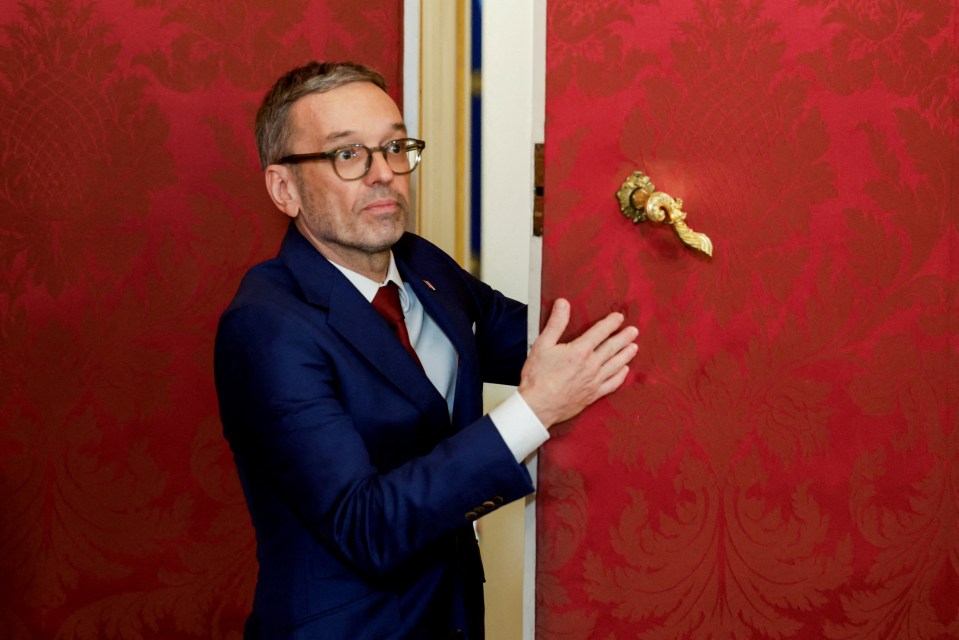A PARTY founded by a former Nazi SS henchman has swept into power in a major European country – signalling the worrying continued growth of the far-right.
Austria‘s Freedom Party has been asked to form a government but how did this anti-EU group come to lead a key nation?
ReutersThe leader of the Austrian far-right Freedom Party (FPO) Herbert Kickl[/caption]
ReutersKickl’s anti-EU party won nearly 29 per cent of the Austrian parliamentary election vote[/caption]
AP:Associated PressSupporters wave a flag during the local elections in Vienna for the FPO[/caption]
The Russia-friendly FPO party won nearly 29 per cent of the country’s parliamentary election in September.
Its far-right leader was initially pushed to the sidelines after the conservative Chancellor Karl Nehammer’s party came second.
Despite this, he was asked to form a coalition as no other party was willing to work with the FPO.
The FPO’s leader Herbert Kickl has since been asked to form a government after coalition attempts failed.
Nehammer handed in his resignation on Saturday, pushing Kickl to the front of Austrian politics.
These talks, if successful, could lead to Austria’s first-ever anti-EU and pro-Russia government which could shake the nation.
The hard-right party, with deep Nazi roots, called for tougher immigration policies and cutting aid to Ukraine.
Kickl even campaigned using the “people’s chancellor” moniker which was once used to describe Hitler.
This party’s worrying start came when it was founded by Nazi SS officer Anton Reinthaller in 1956.
The group started as a Germanic national liberal party and its second Chairman Friedrich Peter was also a former SS officer.
The FPO started as a fringe right-wing party during the Cold War but a worrying rise in populist and extreme parties across Europe has given the party its first huge leap into power.
The breakthrough follows an alarmingly increasing number of wins of the far-right in Europe – especially in larger nations like France and Germany.
This surge to far-right parties in Europe began last September with the win of pro-Putin Robert Fico in Slovakia.
The leader’s promises to end military support for Ukraine won Smer 22.95 per cent of the vote and 42 seats.
Two months later, the controversial Dutch politician Geert Wilders bagged a surprising win in The Netherlands.
Dubbed “Europe’s Most Dangerous Man,” he has been vocal about his anti-Islam views and has even compared the Quran to Hitler’s Mein Kampf.
France’s Emmanuel Macron was forced to call a snap French election this summer after he suffered a heavy defeat to Marine Le Pen’s far-right party.
Her National Rally gained 31.5 per cent of the popular vote which was double that of Macron’s Renaissance coalition.
The EU’s biggest nation, Germany, saw a far-right party win a regional election in September – the first time since the rise of the Nazis.
The Alternative for Deutschland won the majority of votes in Thuringia the first win for the far-right in a regional election since WW2.
GettyThe Secretary General of the far-right FPO Christian Hafenecker and supporters react to initial results in Austrian parliamentary elections on 29 September 2024[/caption]
ReutersProtesters demonstrate against the far-right Freedom Party on January 6, 2025[/caption]

